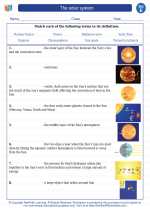The Heart
The heart is a muscular organ in the human body that is responsible for pumping blood throughout the circulatory system. It is located in the chest, slightly to the left of the midline of the body.
Anatomy of the Heart
The heart is divided into four chambers: the left and right atria, and the left and right ventricles. The atria receive blood from the body and the lungs, while the ventricles pump blood out to the body and the lungs. The heart is also surrounded by a protective sac called the pericardium.
Function of the Heart
The main function of the heart is to pump oxygenated blood to the body's tissues and organs, and to pump deoxygenated blood to the lungs for oxygenation. This process is essential for providing the body with the oxygen and nutrients it needs to function properly.
Circulation
The heart works in conjunction with the circulatory system, which consists of blood vessels such as arteries, veins, and capillaries. The heart pumps blood through this network of vessels, delivering oxygen and nutrients to the body's cells and removing waste products.
Study Guide
- What are the four chambers of the heart?
- What is the main function of the heart?
- How does the heart work with the circulatory system?
- Draw and label a diagram of the heart, including the chambers and major blood vessels.
- Explain the pathway of blood through the heart, starting with the right atrium.
◂Science Worksheets and Study Guides Fifth Grade. The solar system

 Worksheet/Answer key
Worksheet/Answer key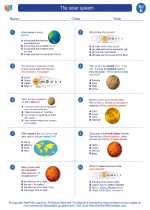
 Worksheet/Answer key
Worksheet/Answer key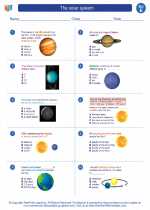
 Worksheet/Answer key
Worksheet/Answer key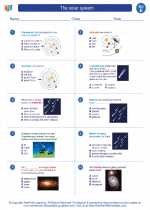
 Vocabulary/Answer key
Vocabulary/Answer key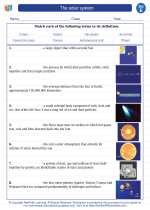
 Vocabulary/Answer key
Vocabulary/Answer key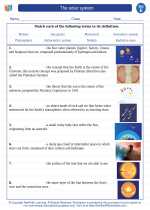
 Vocabulary/Answer key
Vocabulary/Answer key